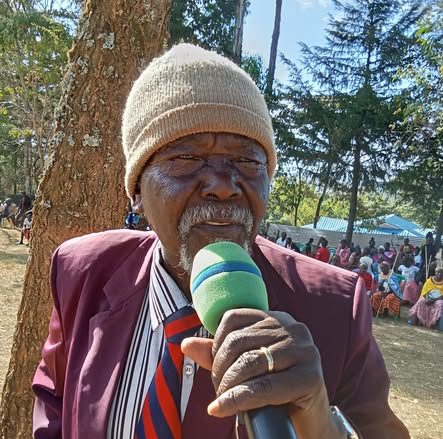When Kenya rolled out the Competency-Based Curriculum (CBC), now Competency-Based Education (CBE), the dream was grand. Classrooms would become spaces of creativity and exploration, moving away from the rigid, exam-driven 8-4-4 system. Learners would “learn by doing,” teachers would guide, and students would gain life skills alongside knowledge.
The 8-4-4 system had its flaws: content-heavy, exam-driven, and focused on rote memorization. Yet it had one undeniable strength — it ensured learners mastered the basics: reading, writing, arithmetic, and core sciences. Students may have lacked creativity or practical skills, but they could read a sentence, solve a math problem, or recall factual knowledge.
CBC promised to fix 8-4-4’s weaknesses by emphasizing skills, competencies, and practical knowledge. Unfortunately, the execution failed to strike a balance.
When Exams Died, Effort Died Too
The first cracks appeared when the Ministry of Education banned exams in lower primary. Circulars warned schools against testing learners; disobedience could lead to sanctions. Teachers, following orders, stopped assessing learners.
The logic was to reduce stress and foster a love for learning. But removing exams removed accountability and motivation. Teachers had no benchmarks for learner progress, and learners drifted through lessons with little mastery of basics. When assessments were reintroduced later, they were complex and performance-based. By then, gaps had already formed. Students had spent crucial years engaging in activities — washing hands, planting, coloring, and singing — instead of mastering literacy and numeracy.
The Lost Cohorts
The current Grade 9 learners are relatively lucky; they experienced 8-4-4 for their first three years. The worst affected are those in Grades 7 and 8 — the first full CBC generation. Instead of learning foundational skills, they spent their early years immersed in activities, often disconnected from core learning.
Teachers were not to blame. They complied with the system, using the resources provided. Parents tried to support their children, often confused by the endless manuals, charts, and exercises. The real issue lay in policy: a rushed, poorly guided rollout that favored appearance over substance.
ALSO READ:
It is the adults who pressure candidates to cheat in national examinations
CBE vs 8-4-4: The Trade-Off
In theory, CBE aimed to combine 8-4-4’s strength in foundational knowledge with practical competencies. In practice, however, it sacrificed academic basics for activities.
8-4-4 ensured mastery of literacy, numeracy, and exam preparedness but left learners weak in creativity and practical skills. CBE, on the other hand, cultivated creativity, life skills, and hands-on competencies, yet often failed to cement fundamental literacy and numeracy, leaving learners underprepared for senior school.
This imbalance threatens learners as they transition to senior schools. Without remedial measures, the gaps formed in lower grades will follow them, impacting their ability to handle complex subjects, exams, and higher education in the future.
Challenges Awaiting Senior Schools
Next year, senior secondary schools will likely face learners who struggle with reading comprehension, essay writing, and understanding exam questions. Numeracy gaps will make algebra, geometry, and applied sciences difficult. Students accustomed to activity-based learning may find structured assessments unfamiliar, leading to poor time management and anxiety. Scientific inquiry may remain superficial, with learners unable to explain principles or conduct experiments independently. Some students may feel demotivated when confronted with ranking and competition, having grown used to “everyone does well” feedback.
Without early intervention, these learners risk underperforming in KCSE, affecting higher education prospects and vocational pathways.
Reinforcing the Basics and Essential Skills
To rationalize the system and improve learning, schools must focus on teaching core academic skills alongside essential competencies. Literacy and numeracy remain non-negotiable — students must be able to read fluently, write coherently, and solve fundamental problems. In parallel, learners should develop critical thinking, problem-solving, communication, and collaboration skills, which are the backbone of CBE.
Daily guided reading, structured writing exercises, and practical numeracy lessons will bridge foundational gaps. At the same time, group projects, research tasks, and real-world problem-solving exercises should train learners to apply knowledge meaningfully. Continuous formative assessments will ensure learners master both academic basics and practical competencies.
ALSO READ:
Incumbent Geff Bett ‘OCS’ widens lead in KNUT Bomet assistant executive secretary race
Empowering Teachers with Skills
Teachers need diagnostic, adaptive, and mentoring skills to manage diverse classrooms effectively. They must identify gaps early, personalize learning, and link activities to academic objectives. Continuous professional development should focus on integrating core skills with competency-based approaches, giving teachers the tools to make lessons both engaging and rigorous.
Making Projects Purposeful
Activities and projects must be intentionally linked to learning objectives. Hands-on tasks should reinforce literacy, numeracy, and scientific understanding while developing problem-solving, creativity, and teamwork skills. When learners see the connection between theory and practice, skills become internalized rather than superficial.
Engaging Parents and Communities
Parents play a critical role in nurturing essential skills. Structured guidance will help them support reading, writing, numeracy, and inquiry skills at home. Communities that understand CBE can provide mentorship, practical learning opportunities, and encouragement for both academic and life skills development.
Monitoring, Adjusting, and Restoring Accountability
Curriculum reforms must be gradual and evidence-based. Teachers, learners, and schools need clear benchmarks to measure both competencies and foundational skills. Formative assessments and feedback loops will motivate learners and ensure teachers adapt strategies effectively. Accountability, recognition of achievement, and alignment of activities with learning objectives will make CBE meaningful and sustainable.
Kenya’s CBE dream is still attainable. By strengthening foundational skills, nurturing critical competencies, empowering teachers, making activities purposeful, and restoring accountability, learners can become both competent and capable. Without a skillful overhaul that prioritizes the right skills, the challenges that began in lower grades will echo in senior schools, creating a cycle that will be exponentially harder to break.
By Hillary Muhalya
You can also follow our social media pages on Twitter: Education News KE and Facebook: Education News Newspaper for timely updates.
>>> Click here to stay up-to-date with trending regional stories
>>> Click here to read more informed opinions on the country’s education landscape






